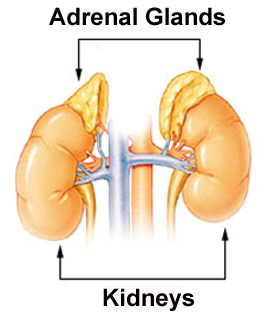
What is Addison Disease? How to manage it? What are the precautions to be taken? What are the signs and symptoms? What is the cause of this disease? How to treat it? How can homeopathy help you? All of this answered, in this post and of course our doctors always there to help you. Just fill in your details in the form down below and we will answer all your questions for FREE!

What is Addison’s disease?
Addison’s disease is a chronic endocrine disorder. It is also called adrenal insufficiency. It occurs when there is the insufficient production of cortisol hormone by adrenal glands that are located on the top of the kidney.
Addison’s disease is characterized by abdominal pain, weakness, fatigue, weight loss and low blood pressure.
Cortisol: Cortisol is a steroid hormone. It is also called adrenal cortical hormone, hydrocortisone or glucocorticoid. Cortisol is known as a stress hormone as it is released in high amount during “fight or flight” response to stress.
Cortisol helps in:
• Maintaining function of heart and blood pressure.
• Slowing down the inflammatory response of the immune system.
• Regulating the fat, proteins and carbohydrate metabolism.
Cortisol is released by adrenal glands that are located on each kidney. The pituitary glands secrete adrenocorticotropic hormone that controls the release of cortisol by adrenal glands. The level of cortisol is high in the morning and low at night.
Release of cortisol hormone: A part of the brain is called hypothalamus sends corticotrophin-releasing hormone (CRH) to the pituitary gland. Under the influence of CRH, the pituitary gland secretes adrenocorticotropin hormone (ACTH) which reaches the adrenal glands. The adrenal glands are located on the top of each kidney, on receiving ACTH they release cortisol hormone in the bloodstream.
Who are prone to get affected with Addison Disease?
It is common for women and children. Higher incidence occurs in 30-50 years of age.
What is the prognosis of Addison Disease?
If the condition is not diagnosed and treated on time it results in death.
What are the causes of Addison disease?
• During development, gland does not form properly.
If the gland is unable to produce cortisol.
Certain disease conditions cause harm to the adrenal gland e.g.
tuberculosis, HIV, bacterial or fungal infections, cancer, bleeding into the gland, some types of surgery or radiation treatments, injury to the gland, long-term use of steroid and sudden withdrawal.
What are the signs and symptoms of Addison’s disease?
• Muscle weakness.
• Weight loss.
• Fatigue.
• Nausea, vomiting, and diarrhea.
• Low blood sugars.
• Low blood pressure.
• Irritability.
• Cravings for salt.
• Depression.
• Patchy discoloration of the skin.
• Irregularity or sudden stoppage of the menstrual cycle.
• Moderate Hair loss.
If Addison disease left untreated it results in sudden onset of symptoms called Addisonian crisis which is a medical emergency. Symptoms include:
• Severe vomiting and diarrhea leading to dehydration.
• Very low blood pressure, blood glucose, and sodium level.
• Loss of consciousness.
• Pain in lower back, abdomen, and legs.
• Convulsions.
• Elevated potassium and calcium level in the blood.
• Confusion, psychosis, slurred speech.
• Fever.
What are the Investigations for Addison’s Disease?
• Physical examination for change in skin color, blood pressure, dehydration.
• Blood tests for potassium sodium cortisol levels.
• ACTH stimulation test.
• MRI.
What is the Differential Diagnosis of Addison Disease?
• Adrenal Hemorrhage.
• Eosinophilia.
• Histoplasmosis.
• Hyperkalemia.
• Adrenal Crisis.
What treatment is advised in Addison’s Disease?
Taking corticosteroids will help in relieving the symptoms.
What are the complications of Addison Disease?
• Cardiac arrest.
• Hypovolemic shock.
• Stroke.
• Hypoxia.
• Hypoglycemia.
What Homeopathy treatment is commonly indicated in Addison’s Disease?
• Arsenic Alb
• Argentum nitricum
• Natrum mur
• Calcarea carb
• Thuja Occidentalis
• Nitric acid
• Antimonium crud
• Secale Cor
What Diet Management is advised in case of Addison disease?
The main aim of treatment is to reduce the morbidity and complications of the disease.
Diet:
• Increase intake of sodium in diet especially in hot weather and after exercise e.g. table salt, pickles, canned food.
Increase intake of whole grains and cereals.
• Potassium-rich food e.g. oranges, banana, apricots etc. should be reduced.
For more information, you can visit MayoClinic and Wikipedia.
We have a strong web presence all across the globe with patients in major countries like United States, Australia, United Arab Emirates, Canada, United Kingdom, most European countries, & even smaller counties like Uganda, Nepal, Bangladesh and many more.
We have a very efficient team of doctors which includes the right combination of highly experienced doctors and the doctors of the new age.
Our main aim is to make the patient comfortable so that the case can be taken with ease and the patient be treated properly.
** The text on this website is sourced from websites like emedicine and/or other verified material by government agencies around the globe along with valuable inputs and additions by our team. The content of this page is proofread and updated by the team of doctors, every once in a while, to provide the most accurate information.